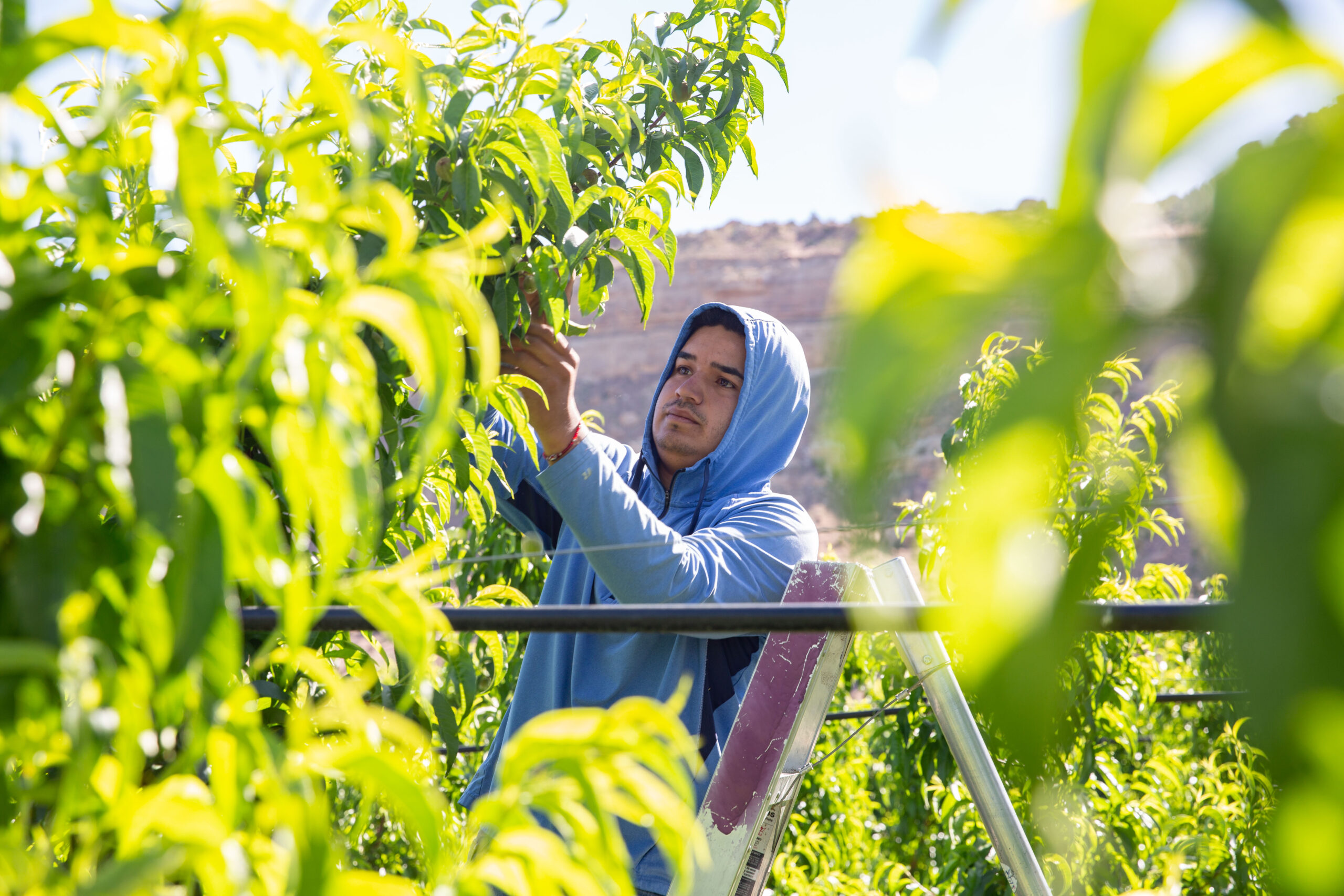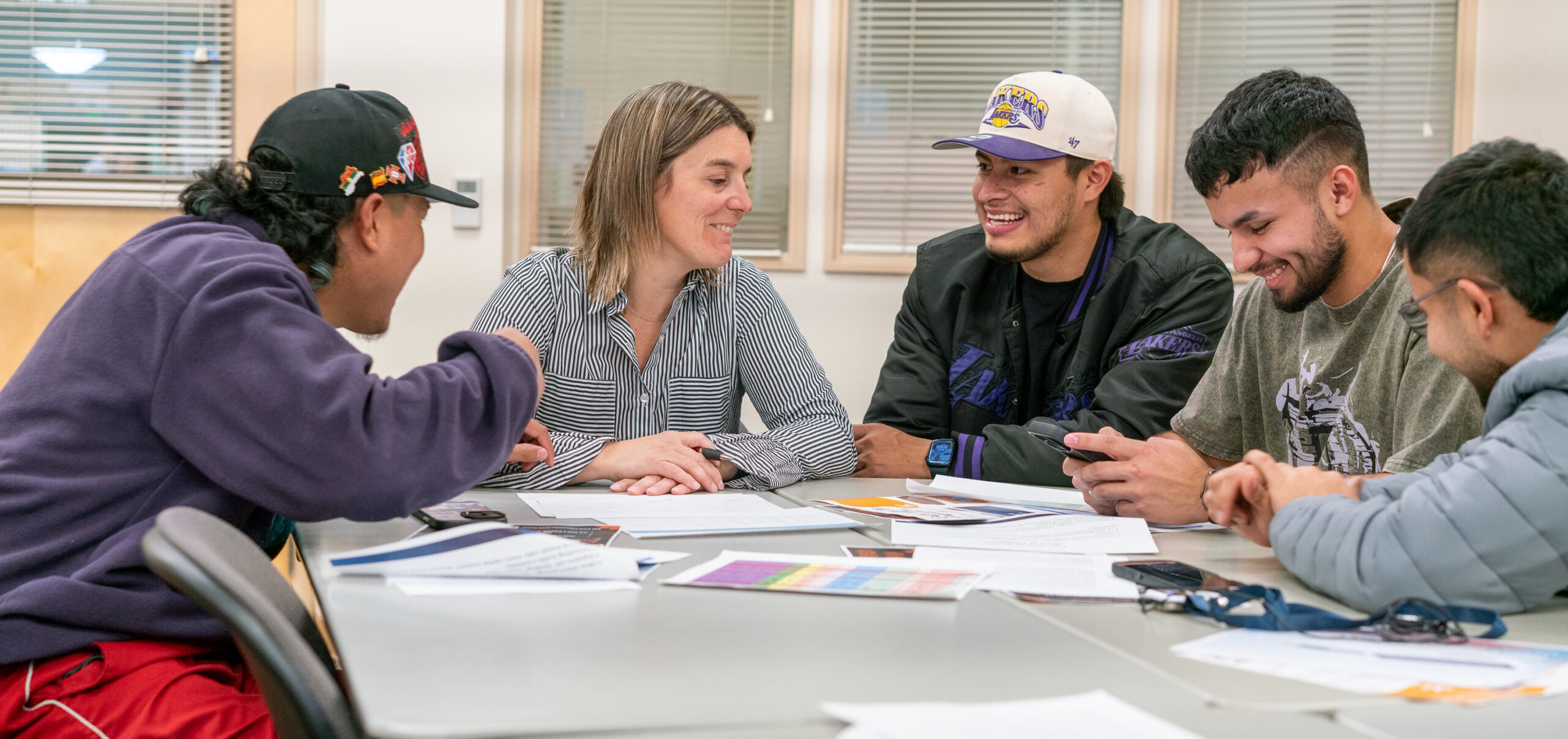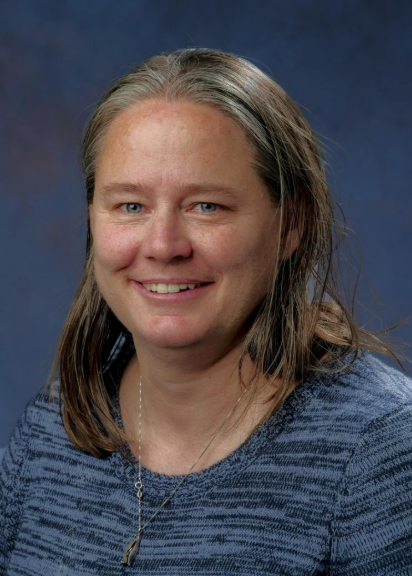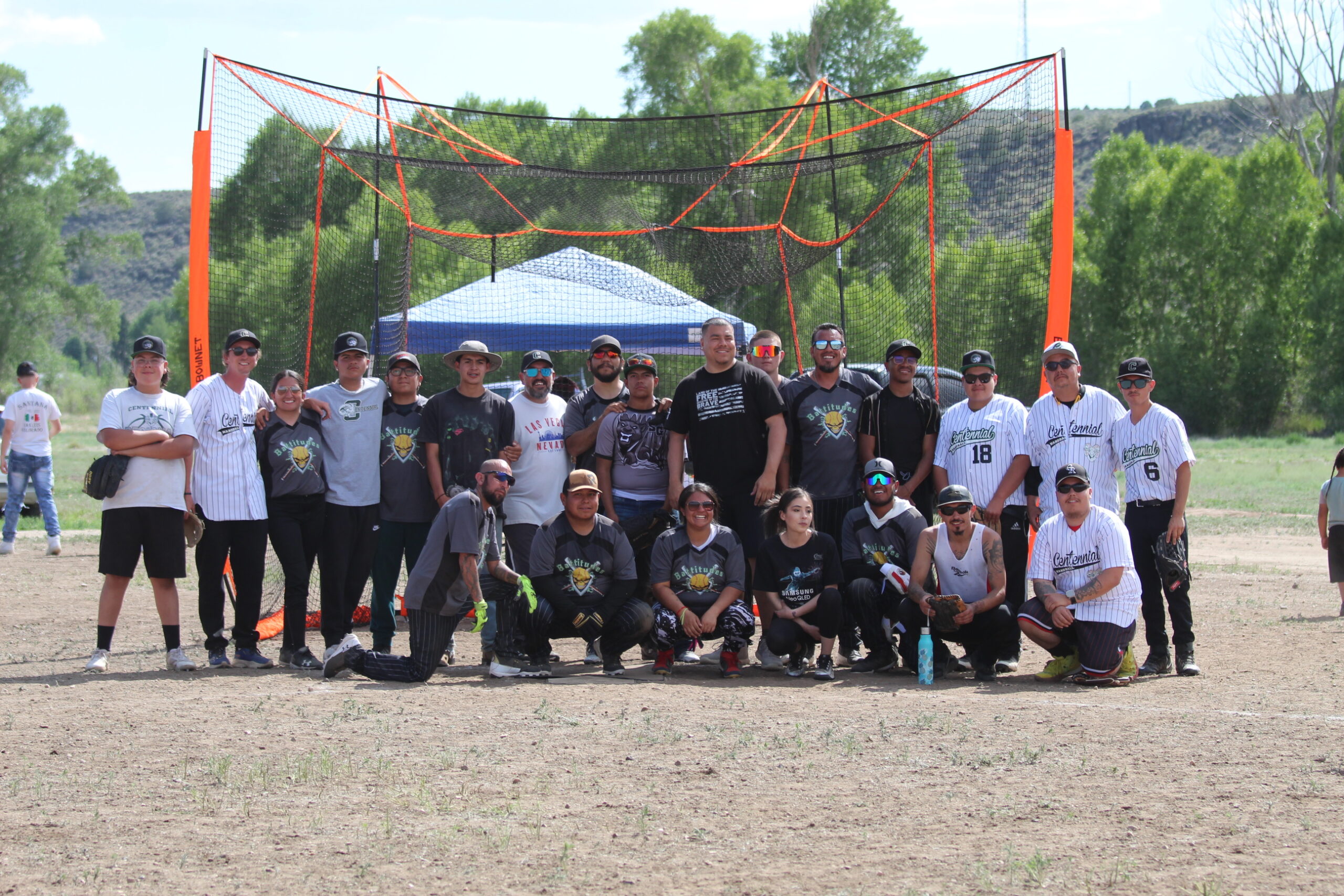For Coloradans, it’s the most wonderful time of the year. No, not holiday season, peach season!
Each year, late summer means that it’s finally time to indulge in the juiciest and world famous peaches, grown in the fertile soil of Palisade, located in our state’s Grand Valley on the Western Slope.
There’s nothing quite like a Palisade peach, thanks to the region’s unique, high desert climate along the Colorado River.
The town of approximately 2,500 is framed by the Grand Mesa and the dramatic Book Cliffs.
Without Palisade’s access to the Colorado River and water rights – a priceless commodity in the west – the state’s peach industry likely wouldn’t exist.
According to Gwen Cameron, a second-generation peach farmer and owner of Rancho Durazno, it’s Palisade’s special combination of elevation, wind, hot days and cool nights that gives Palisade peaches their unmatched flavor.
But peaches are more than a commodity to Palisade, they have become an intrinsic part of the community’s identity, also known for its several dozen wineries and vineyards that capitalize on the same sunny, irrigated conditions ideal for both fruit trees and wine grapes.
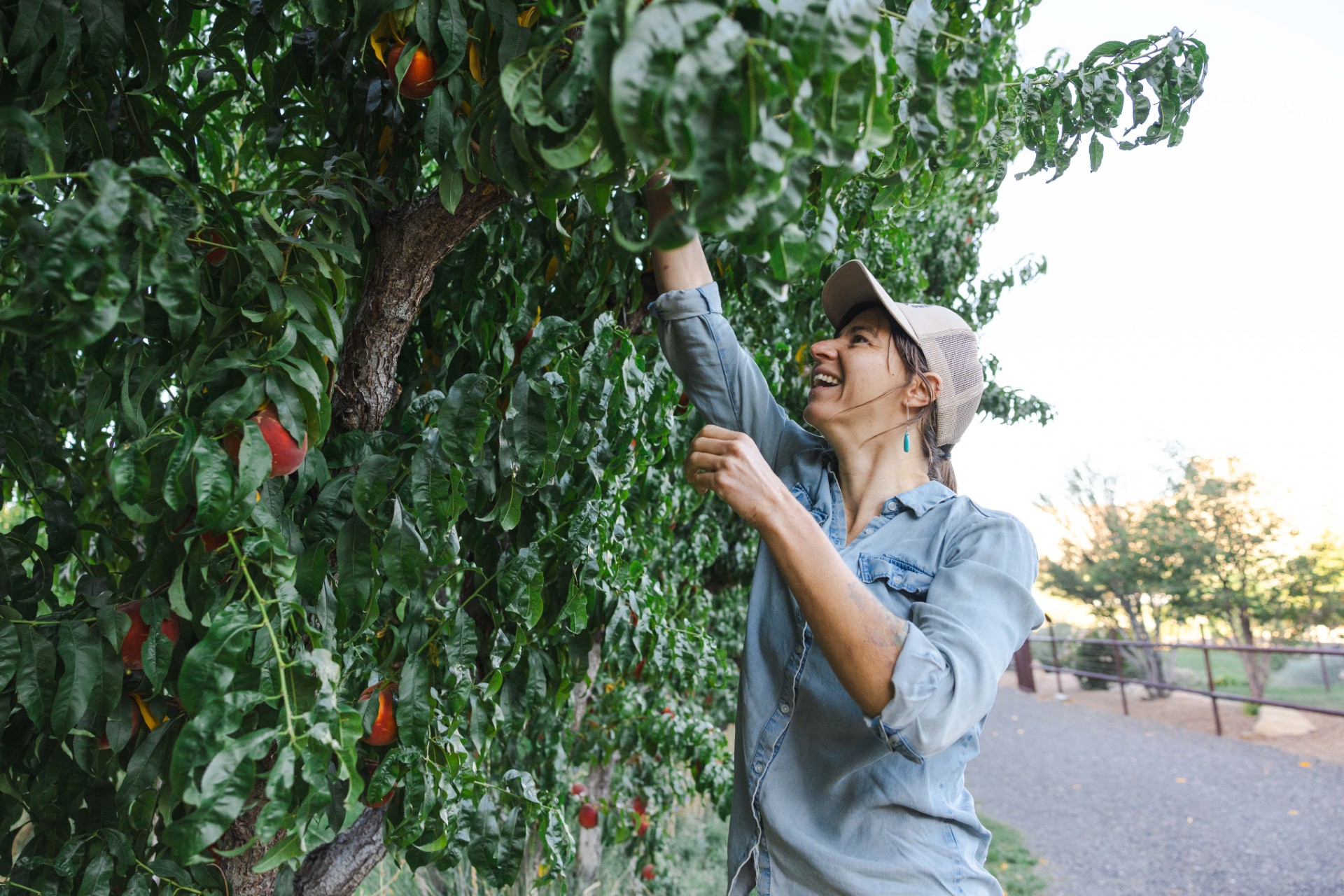
“Anywhere there isn’t a house in Palisade, there is a peach tree,” said Cameron. “Us farmers have filled in wherever we can with orchards, and both the landscape and tourism are shaped by it. For the Western Slope as a whole, it helps draw people over from the Front Range and gives them a reason to come visit and try the fruit.”
If you ask Western Slope native and former Boettcher Foundation President, Tim Schultz, he’ll tell you his upbringing was very much shaped by Palisade’s prized fruit.
“I grew up on Palisade’s edge, so these wonderful, juicy peaches were a big deal for me,” said Schultz. “It’s always been my image of what a peach is supposed to be.”
But peaches notoriously do not travel well, so when Schultz moved to Denver to serve as commissioner of agriculture in the 1980s, he was disappointed in the fruit he had access to.
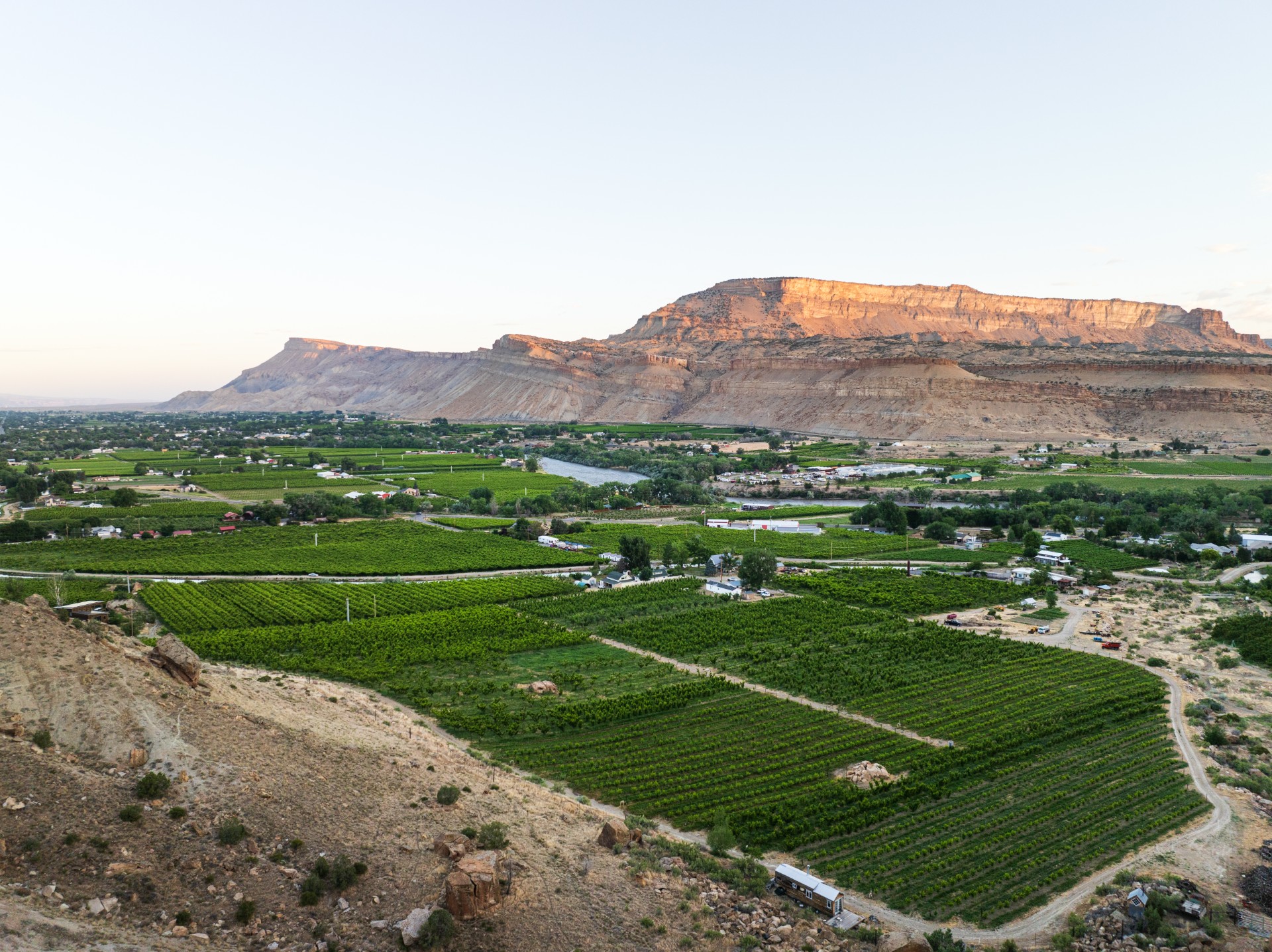
At the time, while agriculture was a major economic driver for the state, the ability for Front Range families to purchase Colorado-grown produce was limited.
So, Schultz approached Mesa County’s Peach Growers Association with a proposition: if they would partner with him to ensure they could maintain quality and ship the produce to Denver, Schultz would help sell their products.
At the time, only one peach grower agreed – Gwen’s father, Thomas Cameron.
Schultz later helped establish one of the first farmers’ markets in Downtown Denver, where Palisade peaches have since become a staple. Schultz learned that the value of this work was far beyond its commercial potential; it was the personal connections achieved via the simple act of exchanging a ripe peach.
When he became president of Colorado Open Lands and then Boettcher, Schultz started “Peach Day.” Instead of thanking partners and donors during holiday season and getting lost in the shuffle, he began delivering fresh Palisade peaches in late summer, when they are at their ripest.
“The most important thing was that the peaches be delivered by a Boettcher staff person, thanking the recipient for what they do for us,” explained Schultz.
The peaches and the personal delivery are a tradition and partnership that continues today. Next week, in the predawn hours of August 21, a truck will depart Palisade carrying freshly harvested peaches, arriving in Arvada by 8am to be delivered directly into the hands of Boettcher stakeholders before lunchtime.
“Anytime we can shorten the metaphorical distance between the farm and the person eating the peach is a cool opportunity and [Peach Day] is one of those cool opportunities,” said Cameron.
While events like Peach Day help connect consumers to the source of their food, the path from blossom to bite is rarely simple.
One major challenge of being a successful peach farmer in Colorado includes dealing with unpredictable weather events like frost, drought or even wildfires. Other challenges can be transportation-related (road closures) or balancing effective pest control with judicious pesticide use. Of note, Rancho Durazno peaches are certified organic.
In today’s economy, Cameron says it’s also critical to have skilled labor.
“I like working together as a team to do hard things successfully in a way that treats workers well,” said Cameron, noting the motivation for Rancho Durazno to become a member of the Fair Food Program, a worker-driven social responsibility initiative that protects and promotes the human rights of farmworkers.
Raising crops, like peaches, that nourish consumers isn’t for the faint of heart. So, why has Cameron committed to continuing her family farm’s legacy?
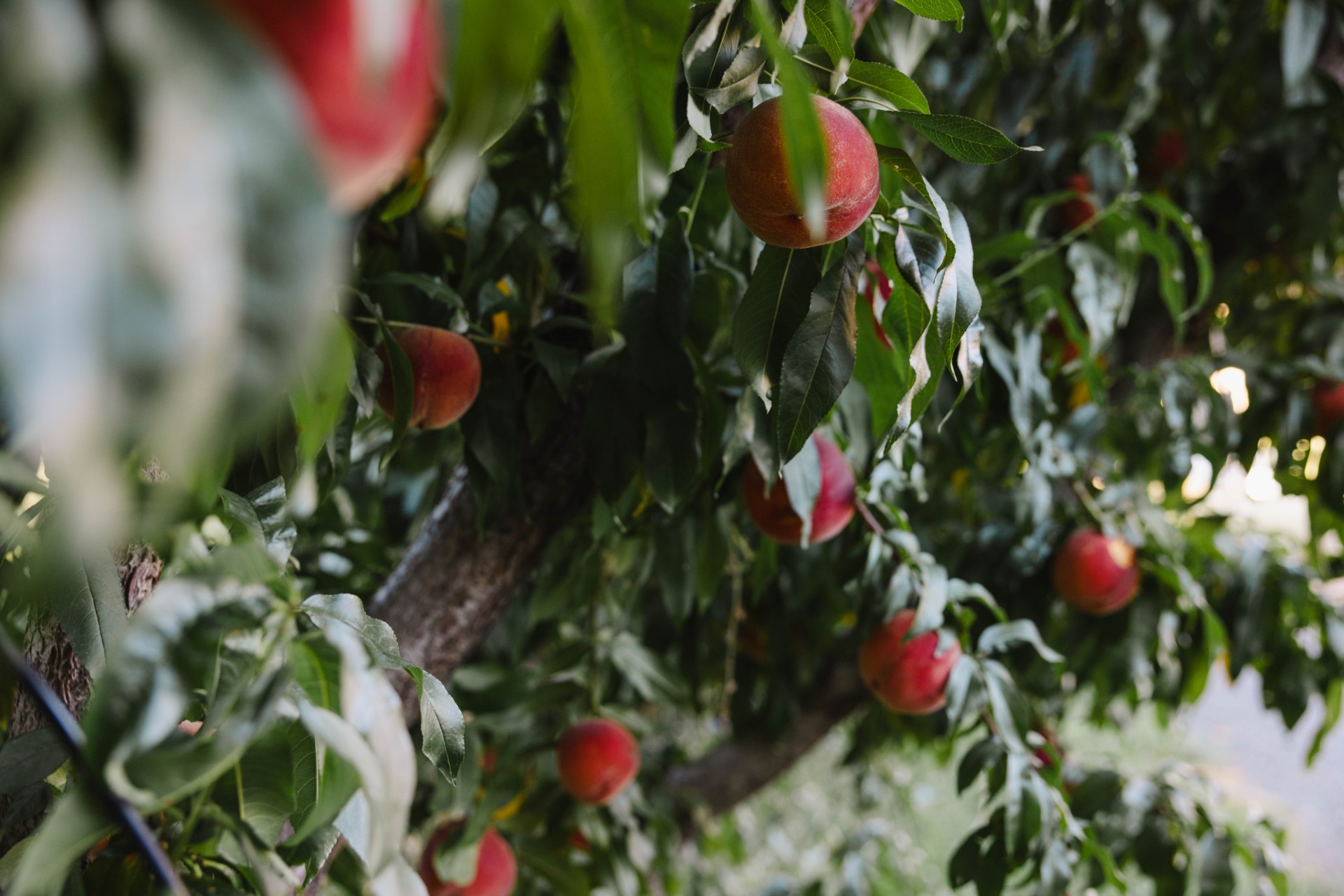
“I think it’s really beautiful work to grow food,” she explained. “We are taking sunlight and turning it into something really delicious that people enjoy. I do it for the moment that at a farmers’ market, someone samples a peach and their whole face changes, with peach juice dripping down their shirt. It definitely makes the struggle worth it when you see people appreciate your hard work.”
For Schultz, delivering the fruits of a farmer’s labor to the Front Range is about more than fresh produce. It’s about weaving community ties and bridging the landscapes of rural Colorado’s fields, orchards, and ranches with the tables of its urban centers.
“I’ve consciously attempted to use peaches as a way to connect people,” Schultz said.
That’s the spirit of Boettcher.

